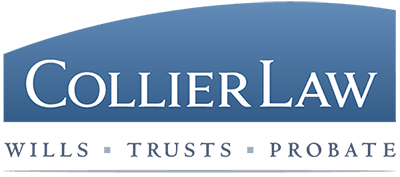You’ve worked hard for your assets, haven’t you? So, it’s only fair you’d want to protect them, even after you’re gone.
But, you might be making some common estate planning mistakes without even realizing it. We’re here to help you identify these errors, understand their potential impacts, and guide you in avoiding them.
Remember, it is always recommended to hire an estate planning attorney for legal advice during the planning process.
Let’s ensure your legacy is well-managed and your loved ones are taken care of, just as you’d want.
Neglecting to Create an Estate Plan

You’re doing your loved ones a disservice by neglecting to create an estate plan. This negligence, unfortunately, is one of the most common estate planning mistakes. Not only does it put your financial future at risk, but it also jeopardizes your legacy and the well-being of those you care about most.
Without an estate plan, you’re leaving the distribution of your assets up to the state, and the results may not align with your wishes. If it’s been more than five years since you’ve updated your plan or you’ve recently experienced a significant life event, it’s time to revisit and revise.
Don’t postpone this task. The choice to either start or review your estate plan is an active step towards ensuring your loved ones’ future security.
Failing to Update Your Estate Plan and Beneficiaries Regularly
If you’ve created an estate plan but haven’t updated it in the last few years, it might be outdated, and you’re risking the chance of it not reflecting your current wishes. It’s a common mistake to view estate planning as a ‘set it and forget it’ task. But ignoring it for too long can lead to significant discrepancies as your life circumstances evolve.
You’re advised to review your estate plan and beneficiary forms every couple of years, particularly after significant life events like births, deaths, divorces, marriages, or even relocations. Best practice suggests updating your will every five to seven years. Additionally, it is recommended to update your health care power of attorney and financial power of attorney every three years.
Don’t let your estate plan become a relic of the past; keep it current and relevant.
Ignoring the Need for a Trust
Don’t underestimate the importance of setting up a trust in your estate plan; it’s a common oversight that could leave your loved ones in a bind. A trust isn’t only about wealth preservation but also about ensuring your wishes are honored. It facilitates the smooth transition of assets, minimizing potential disputes and avoiding probate, which can be costly and time-consuming.
However, setting up a trust requires careful planning. You’ll need to decide on the type of trust that suits your needs, identify the assets to include, and appoint a trustworthy trustee. Without proper guidance, it’s easy to make errors that can undermine your estate plan.
- Product specs:
- – Trust document
- – Trust assets
- – Trustee
- Pros:
- – Can avoid probate and other fees that go along with the probate process
- – Minimizes disputes among relatives
- – Preserves wealth or any personal assets owned
Naming Your Children Joint Owners of Your Assets
While it might seem like a straightforward solution, naming your children as joint owners of your assets can lead to unforeseen complications, particularly when it comes to their creditors. You may trust your child’s responsibility, but remember, if they drive, every road user is a potential creditor. You wouldn’t want your hard-earned assets jeopardized by an unfortunate accident, would you?
A smarter option is to name your child as your power of attorney and payable-on-death beneficiary to your bank or brokerage accounts. This arrangement allows them to access your funds if needed during your lifetime, but crucially, it keeps those assets out of their estate. Therefore, your child’s creditors can’t touch your assets, ensuring your estate is secure.
Skipping on Professional Guidance
In spite of your confidence, skipping professional guidance for estate planning could lead you down a path of unforeseen legal complications.
Estate planning involves more than drafting a will. It’s a complex process that requires:
- Understanding of tax laws which constantly evolve. You’re not expected to keep up with these changes, but professionals do.
- Knowledge of probate laws. Mistakes here could lead to lengthy and expensive legal battles for your heirs.
- Insight into your financial situation. Professionals can suggest options you haven’t considered.
- Familiarity with the various estate planning legal tools and strategies available. Professionals can assess your specific needs and goals and recommend the most appropriate methods to protect and distribute your assets, such as trusts, powers of attorney, and healthcare directives.
- Awareness of potential risks and liabilities. Estate planning can help minimize the potential impact of creditors, lawsuits, and other unforeseen circumstances on your assets.
- Coordination with other professionals. Estate planning often involves collaboration with other professionals, such as accountants, financial advisors, and insurance agents, to ensure a comprehensive and cohesive plan that addresses all aspects of your financial situation.
- Consideration of family dynamics and personal preferences. Estate planning allows you to make decisions about inheritance, guardianship for minor children, charitable giving, and other matters that reflect your values and priorities.
You might think you’re saving money by doing it yourself, but it’s not worth the risk. It’s more cost-effective to hire an estate planning lawyer who’ll ensure your estate is handled correctly, saving your family from potential legal hassles.
Misunderstanding the Role of Probate
Before diving into estate planning, you’ve got to comprehend the role of probate, for it’s often misunderstood and can cause significant complications in the future. Probate is a legal process that validates a deceased’s will and disseminates their assets under court supervision.
Here’s where you might stumble. You may assume all assets go through probate, but that’s not the case. Certain assets like life insurance proceeds or property held in joint tenancy bypass this process. Also, you might believe creating a will avoids the expense of probate; unfortunately, that’s a misconception. Even with a will, your estate may still go through probate. Doing your best to avoid it requires methods like establishing trusts or gifting assets while you’re alive.
Misunderstanding probate can lead to unexpected costs and delays, disrupting your estate plans. So, it’s crucial to grasp its intricacies.
Get Help from Collier Law on Estate Planning
You’ll find the help you need at Collier Law for estate planning, and we will guide you through the complexities of probate as well. Our expertise spans all aspects of estate planning, ensuring you’re well-prepared for anything that may come.
At Collier Law, we focus on providing comprehensive estate plans that include:
- A will to distribute your assets according to your wishes.
- A revocable living trust to avoid probate.
Ancillary documents like:
- A Durable Power of Attorney to handle your affairs if you become incapacitated.
- An Advance Directive to communicate your healthcare preferences.
We also offer guidance on reducing estate taxes, planning for business transitions, and supporting minor children. Trust in our experienced team to help avoid common estate planning mistakes. Call us today.
Visit our FAQ page to find answers to common questions you may have about our law firm.

